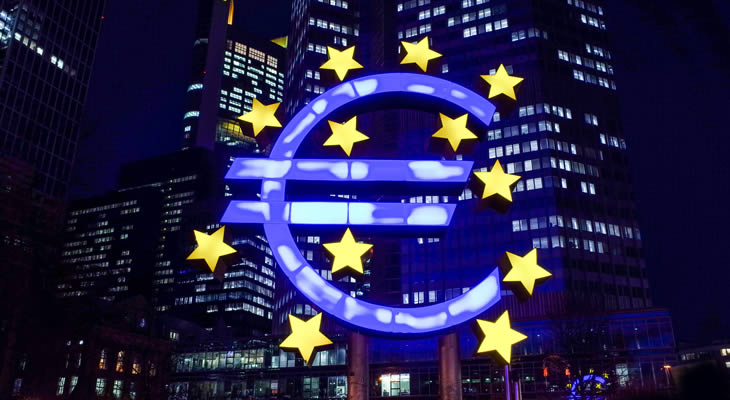GBP/EUR Exchange Rate Rangebound, German Recession Fears Hold Back Euro
The Pound to Euro (GBP/EUR) exchange rate held steady this morning, with the pairing fluctuating around €1.198 after February’s German ZEW Survey of economic sentiment plummeted below forecasts from 26.7 to 8.7.
Due to China’s coronavirus epidemic, the German economy – the largest in the Eurozone – is increasingly expected to face a recession this year, with weak growth being forecast for the first quarter of 2020.
Analysts at Bundesbank commented:
‘For the first quarter of 2020, there are no signs of a fundamental change in Germany’s economy… With the appearance of the coronavirus in China at the beginning of 2020, a new layer of risk was [however] added.’
The Euro (EUR) has remained subdued against many of its peers today, with the odds of the European Central Bank (ECB) forwarding stimulus measures next month now looking increasingly likely as the bloc’s economic woes are expected to continue.
GBP/EUR Exchange Rate Edges Higher as UK Unemployment at Lowest Since 1974
The Pound (GBP) remained unmoved following this morning’s release of December’s UK ILO unemployment rate, which confirmed consensus and remained at 3.8% – its lowest since 1974.
However, today also saw the release of December’s UK average earnings report, which fell below forecasts from 3.2% to 2.9% and left some Sterling traders feeling a cautious as Britain’s economy continues to lose its impetus.
The Office for National Statistics was upbeat in its statement, however, saying:
‘Real regular pay increased by 1.8% to £474 between December 2018 and December 2019.’
‘This was the first time that real regular pay exceeded the pre-downturn peak of £473 recorded in March 2008. However, the annual rate of growth of both total and regular pay slowed down in recent months.’
Post-Brexit uncertainty continues to hold back the GBP/EUR exchange rate, however, after David Frost, the UK’s Chief Brexit negotiator, said that the UK would not remain bound by the EU’s laws.
Mr Frost commented:
‘We bring to the negotiations not some clever tactical positioning but the fundamentals of what it means to be an independent country. It is central to our vision that we must have the ability to set laws that suit us – to claim the right that every other non-EU country in the world has.’
GBP/EUR Outlook: German Recession Fears to Weaken Euro?
Pound (GBP) investors will be looking ahead to tomorrow’s UK inflation report for January. If the figure improves, with forecasts expecting a 1.6% increase, we could see the GBP/EUR exchange rate edge higher as the UK economic outlook brightens at the beginning of 2020.
Tomorrow will also see the publication of the UK retail price index for January. Any signs of improvement in Britain’s retail sector could also prove Pound-positive.
The GBP/EUR exchange rate will continue to be driven by the outlook for the Eurozone’s economy, and with any further indications of Germany facing a recession, we could see the single currency begin to fall.


Comments are closed.